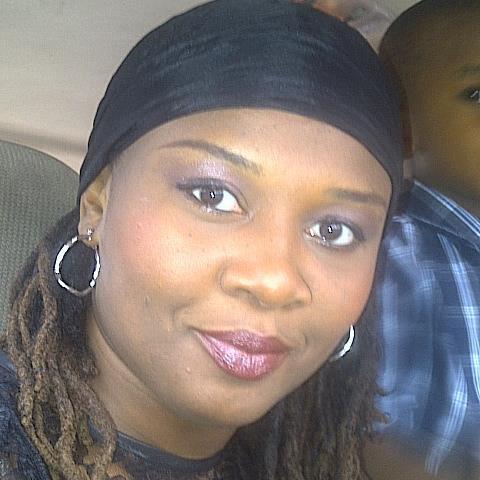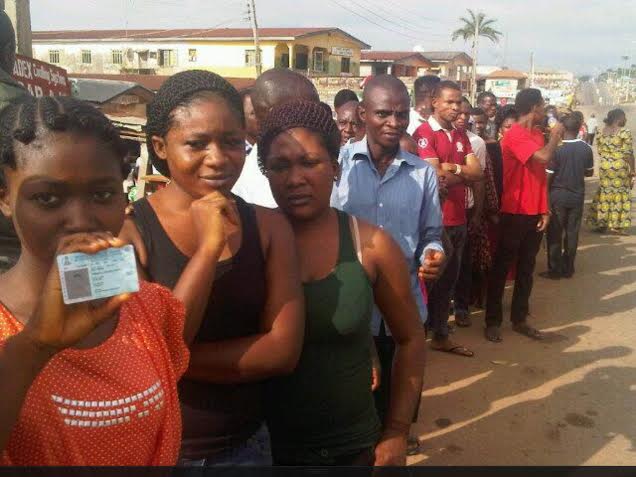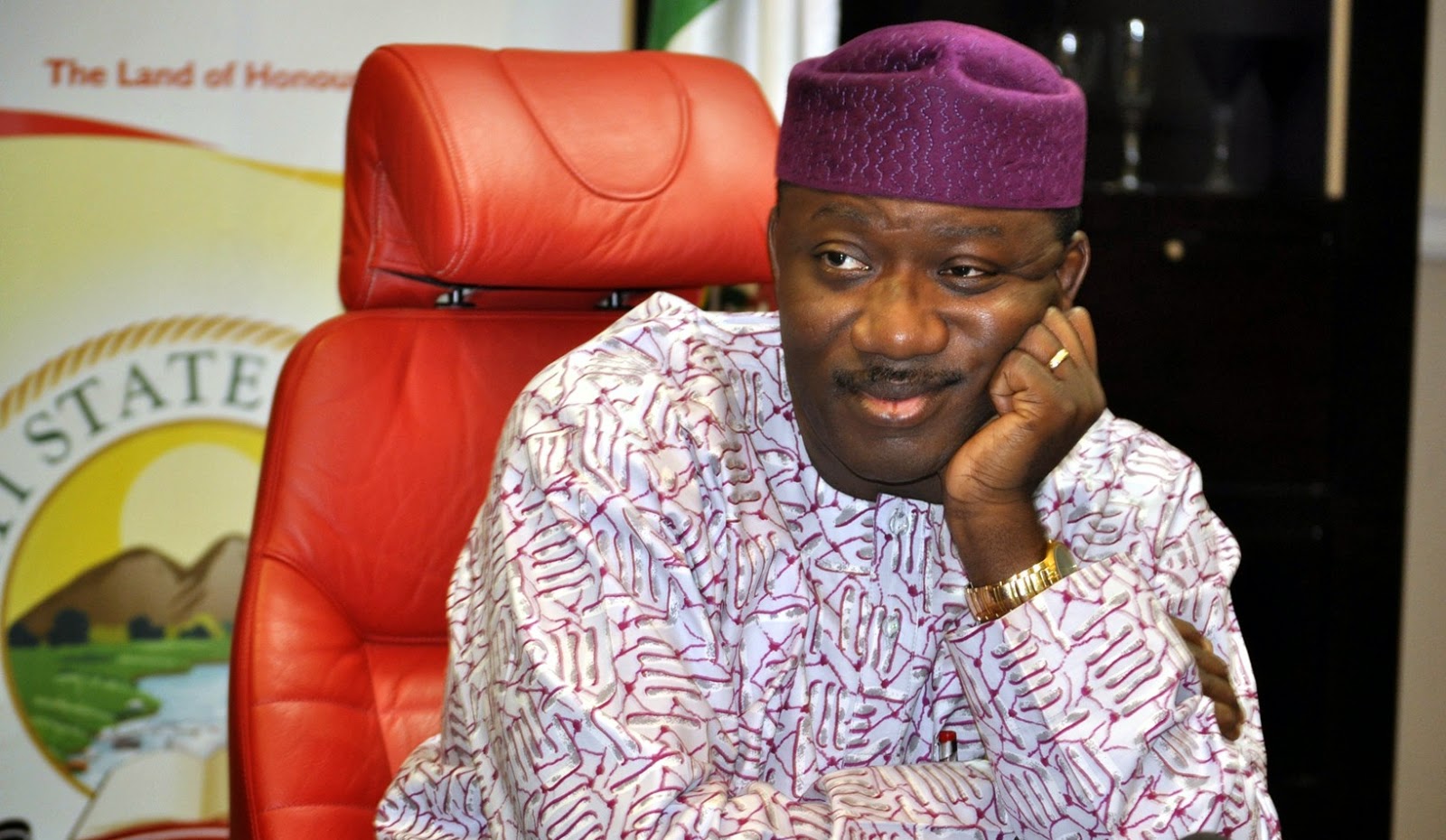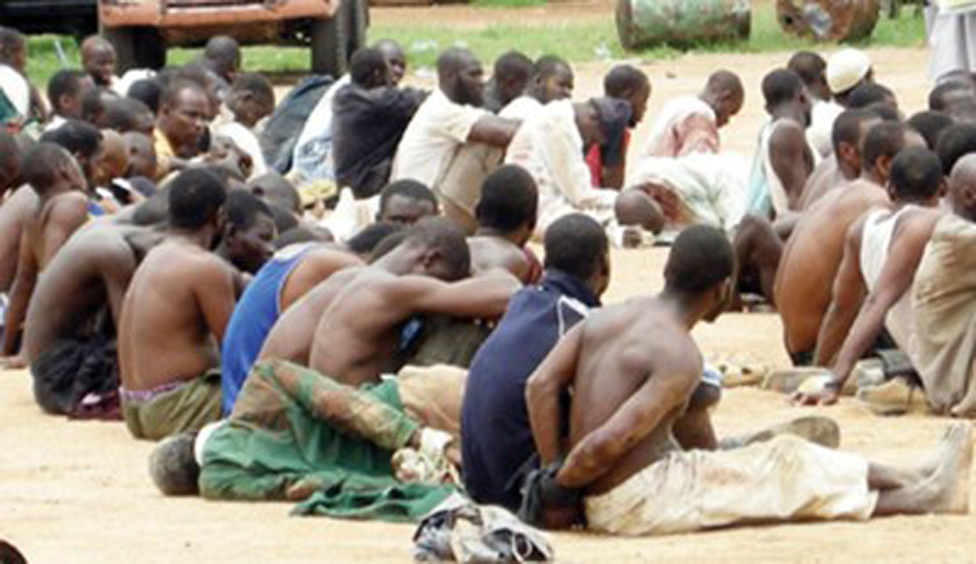Last week, disturbing images from election campaign grounds in Ekiti State spattered across the social media. The images showed long queues of women, the youth and the elderly populations sharing bags of rice bearing the inscription of certain political aspirants and their party logos. Some other images showed large numbers of overjoyed women scooping food from giant coolers containing jollof rice and large chunks of fried meat. This is happening in a 21st century election scheduled in a country whose $509.9 billion (N80.2 trillion) rebased economy is touted as the biggest in Africa.
Fast forward to another location – Makoko, a blighted Lagos slum community where three young Nigerians died needlessly during a tragic eviction exercise by Lagos state authorities. Located on the South East of Mainland Local Government Area where it derisorily overlooks the Lagos Lagoon and the Third Mainland Bridge, Makoko has witnessed in the past, and is threatened with in the future, forced evictions that are ostensibly conducted under the banner of urban renewal. Harsh lessons learned from the July 1990 Maroko (now known as Lekki peninsula) demolition show that urban renewal is an euphemism for tearing down the hovels of the poor and handing over the dispossessed lands to rich new owners. Ironically, it is in these routinely-oppressed and under-served neigbourhoods that you find dedicated voters that endure hours in the sun to vote during elections!
It is totally reprehensible that aspiring governors would audaciously and shamelessly allure voters with bags of rice, without any form of restraint from the electoral management agencies. Seeing majority of your would-be subjects scramble for plates of jollof rice at your election campaign should naturally, rouse any visionary leader to begin to propose solutions to end widespread poverty and hunger. Instead, when voted into power, these governors turn around to ruthlessly mow down the homes of poor citizens whose votes brought them to power. The two scenarios from Ekiti and Lagos attest to the abysmal performance of political and urban governance in Nigeria, resulting from failed land and planning policies, inaccessible financial systems and acutely uneven distribution of resources in Nigeria. They tell depressing stories of citizens serially raped by poverty and ineffective political representation. Worst hit by ineffective political representation are millions of young Nigerians, serially battered by unemployment, forced into violent crimes, militia gangs to make a living and compelled to live in unsafe environments where they face multiple threats to their health and security.
Certainly, this is not one of the best times to be young in Nigeria. The March 2015 tragic stampede during the Nigerian Immigration Service’s (NIS) shabby recruitment exercise which resulted in the untimely death of 19 young Nigerians; the festering security crisis in northern Nigeria that has seen many young school boys and girls raped, abducted and massacred; the one year-long strike of the polytechnic students; the constantly-high failure rates in national examinations such as the Joint Admissions and Matriculations Board (JAMB) and National Examinations Council (NECO) and the grave unemployment situation are few reminders of a gloomy future swathing the youth populations in Nigeria.
Advertisement
There are ample reasons to believe that there exists a deliberately-orchestrated agenda to disempower and disenable the youth populations from participating meaningfully in development and governance activities, in ways capable of transforming their social, political and economic conditions. My first rude awakening to this tacit agenda was in March 2012 when I gained admission to the prestigious Harvard Law School. In my extreme naivety or oblivious optimism, I was quite hopeful that finding both moral and financial support to get the finest of legal education was going to be easy. My appeals for educational support – mailed to popular Nigerian philanthropists celebrated in the finest foreign magazines; the multinational corporate giants whose websites gleefully broadcast colourful declarations of support for education and youth empowerment; loud-mouthed state governors whose favourite pastimes include professing undying love for education on the pages of newspaper – returned torrents of NEGATIVE responses! It was then that I began to interact with millions of other young Nigerians facing similar difficulties in accessing support for post-graduate education. The truth dawned on us: No one truly cares about us!
Not only that, I have seen 52 and 60 year olds emerge youth leaders of political parties. I have seen 56 year olds appointed as minister of “youth development”, even when large numbers of eminently-qualified young Nigerians abound, who are more in tune with the demographics they would serve if given the opportunity. I have seen tuition in state universities hiked by more than 900% even when there is no corresponding improvement in the provisioning of learning infrastructure. I have seen political and business leaders throw lavish wedding parties for their children in Dubai, London and other choice locations at a time their lowly neighbours, domestic staff and young relatives go to bed hungry every night and cannot afford to go to school. I have seen intellectual programmes like The Debaters yanked off television stations and replaced with multitudes of over-recycled shake-your-waist singing and dancing competitions. I have seen corporate groups and philanthropists in Nigeria fall over themselves to support “talented stars” that can shake their hips and flap their breasts so vigorously to amuse and entertain the public. But, tell them you want to pursue further studies in the best schools in the world, they will ignore you like a plague and won’t your touch your boring pursuits with a ten-foot pole. These and many more, shattered my optimism, crushing my faith in the present crop of Nigeria’s social, economic and political leadership.
As the 2015 elections draw closer, it has become clear that our nation is in need of a fundamental shift in how it chooses its political leadership. Estimates have consistently projected that the youth aged between 18-40 make up more than 70% of the total voting population in Nigeria. But do youth-voters realize that they wield formidable influence to shift the balance of power in favour of a new generation of energetic and responsible leaders? Do they recognize that their monumental youth-vote power can potentially be translated into an important turning point in the political history of Nigeria, altering the social, economic and political power relations that promote and preserve inequality and poverty? That is the ultimate goal of Youth-Vote 2015 Election Blog-Zone!
Advertisement
Tope Fasua, Gimba Kakanda, Samuel Diminas, Ruona Agbroko-Meyer, Bucky Hassan, Soni Akoji and Victoria Ibezim-Ohaeri and the guest bloggers on this Blog-Zone are united by friendship-driven civic engagement activities across the web. We call ourselves: The Blog-Zoners because we are drivers of civic learning, applying our digital capabilities and cyber influence to deepen democratic participation and youth voter engagement ahead of the 2015 general elections. We are not just young Nigerian bloggers evidently hurt by the failings of successive political leaderships in Nigeria, but we share a common optimism that we can use what we have – our voices, written words and messages – to boldly and decisively restore the process of democratic change in Nigeria, reining in the repeated attempts to reinstate the past.
We cannot do this alone. We invite YOU to join this dialogue and peer-learning exchange powered by the YV2015 Election Blog-zone. Through our civic learning activities, we are determined to forestall vote-capture by politicians who plan to use money, bags of rice, coolers of jollof rice and other vestiges of mischief to ensnare voters and hoodwink poverty-stricken voters. We want to reach out to our peers in various parts of the country who may eat up their future by allowing hunger/poverty dictate who gets their votes. As the sorry images from Ekiti election campaign illustrate, we are out to avert this oncoming electoral crisis by re-envisioning the tenets of political inclusion and reconfiguring the landscape for democratic engagement.
WE MUST ACT NOW!
*Victoria Ibezim Ohaeri, a human rights lawyer, is the executive director of Spaces for Change (www.spacesforchange.org). She believes that the young generation is at a unique historical moment to take advantage of new media tools and practices to embed systemic changes in Nigeria’s social, economic and political landscape.
Advertisement
4 comments








Nice article and on point
This call is coming at an auspicious time when the youth can’t really differentiate between what is right and wrong.
Congratulations and best wishes as you embark on this journey.. The most captivating phrase for me is
“…reining in the repeated attempts to reinstate the past”.
Bang on! Nothing to add or subtract. This initiative of yours is so timely… indeed fortuitous. Imagine how the Ekiti election issues collided perfectly with your thoughts! My only worry is, how do we get the burgeoning youth to refine their thoughts as to what is and what isn’t important for their future i.e. how do we get them not to be swayed by rice and stew? how do we get them to accept some responsibility for their own future in spite of serial disappointments over the years. The elites are reducing them , and us, to a very simple state of mindless want. Such dependency!
As we approach the 2015 polls, it is imperative for public office seekers to be cognizant of the position, power and prospects of the over 100million youth population whose actions and inactions will in the long run determine the fate and feat of Africa’s most populated country, Nigeria.
For the youth population, there is no better time than now to forge the agenda for incoming elected public officials. Only with the power of our votes come 2015, we can unite to birth the expected change in our socio-economic, political and leadership experience cutting across Power Supply, Education , Youth Employment and Job Creation, Security of lives and Health Care.
We must critically realized that our vote is our power to engage this ‘Big-Mouth’ politicians and hold them accountable for our resources.
2015 General Election is our time to act FAST!!!